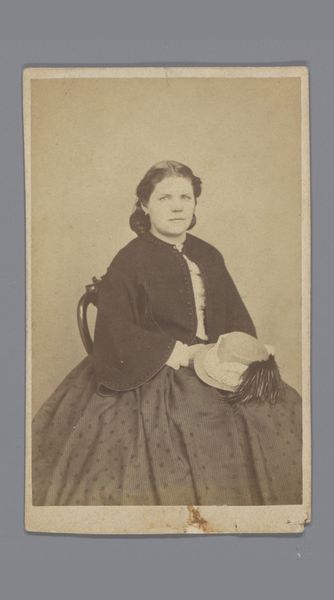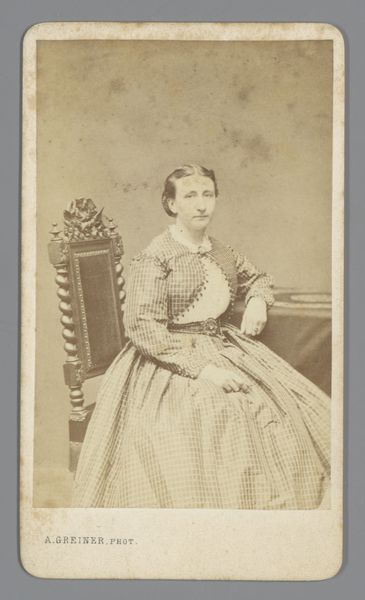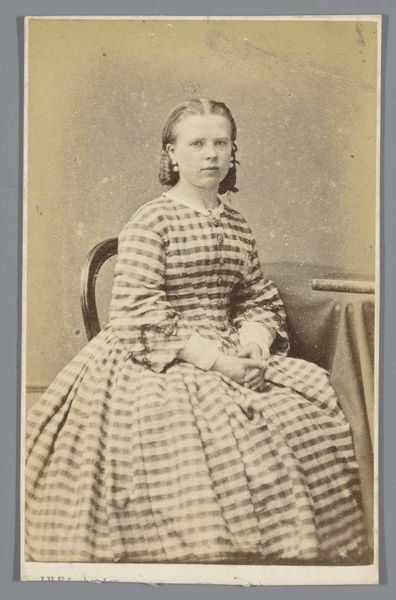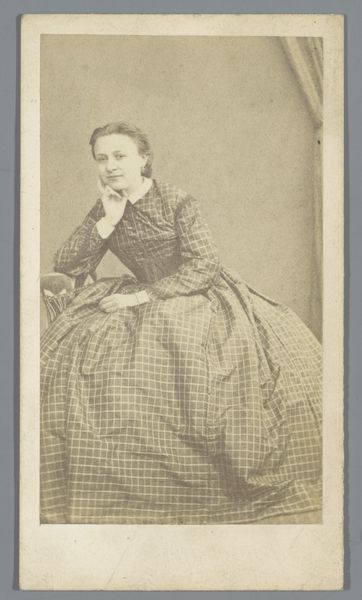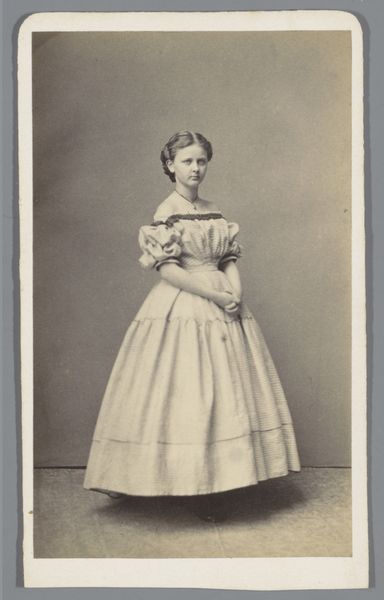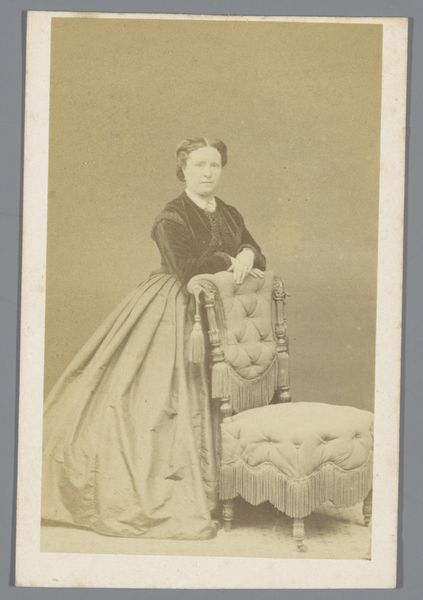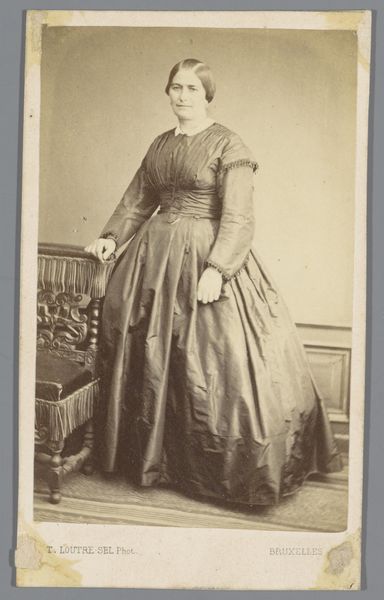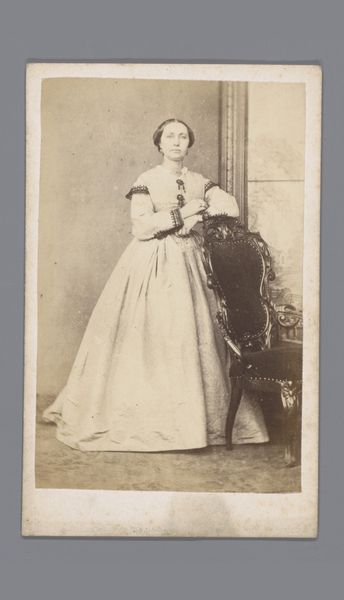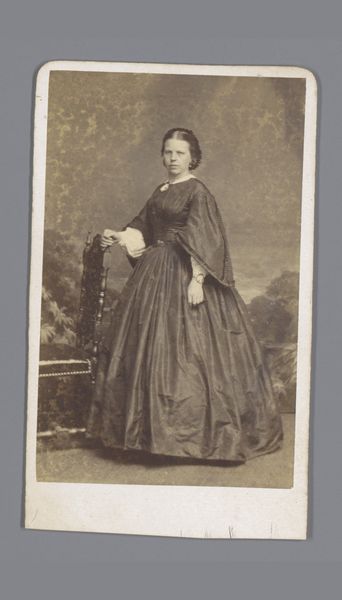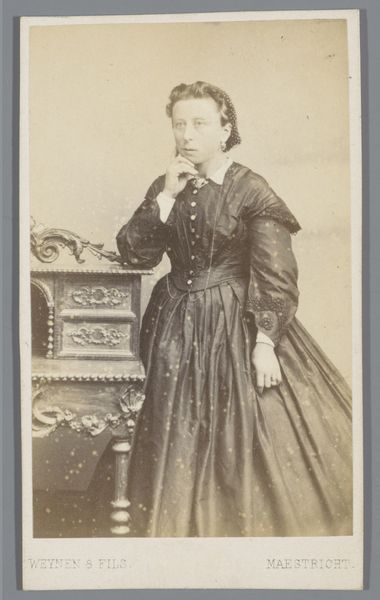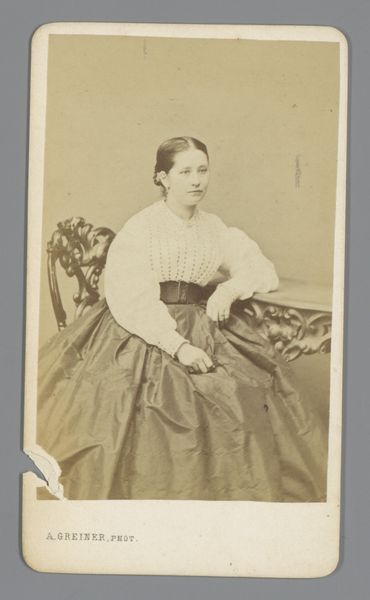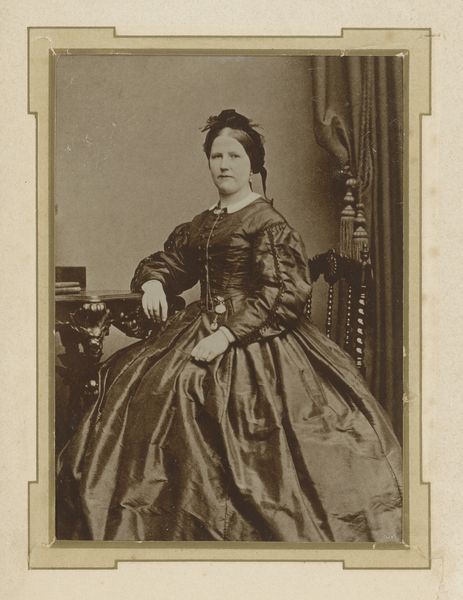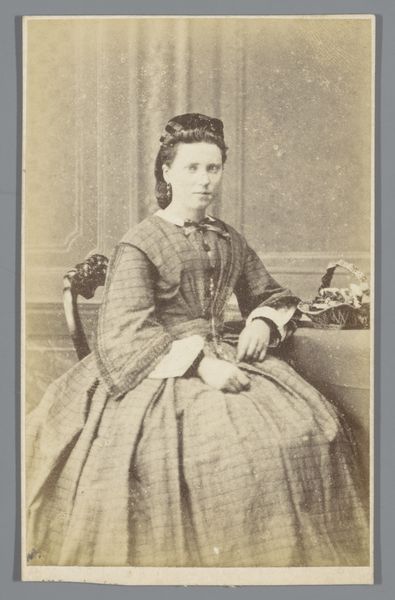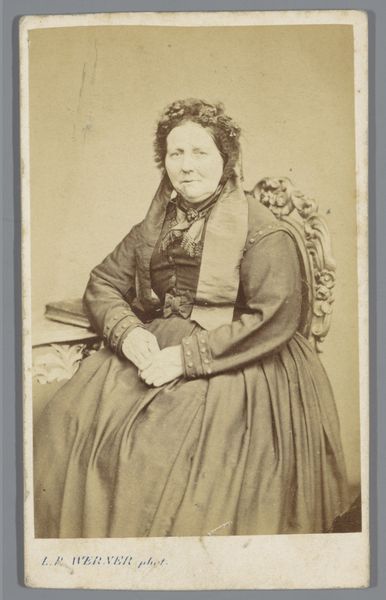
photography
#
portrait
#
photography
#
genre-painting
Dimensions: height 99 mm, width 60 mm
Copyright: Rijks Museum: Open Domain
Hasse Bergman likely created this portrait of an unknown woman using a photographic process called Albumen print. This technique involved coating paper with a layer of egg white and silver nitrate, then exposing it to light through a negative. The resulting image, sepia-toned and finely detailed, was then mounted on card stock for durability. The albumen printing process, popular in the mid-19th century, exemplifies the intersection of chemistry and artistry. The subtle tonal gradations achieved were highly prized, and speak to the skill and artistry of the photographer. More broadly, photography in this period was part of a wave of industrialization, with specialized studios emerging to meet growing demand. While it democratized portraiture to some extent, access still depended on disposable income. The sitter’s dress, for instance, speaks to a level of affluence and engagement with fashion. Considering the work involved – from preparing the photographic materials to posing the sitter and developing the print – photography challenges conventional notions of artistic labor. The process requires both technical expertise and creative vision.
Comments
No comments
Be the first to comment and join the conversation on the ultimate creative platform.
